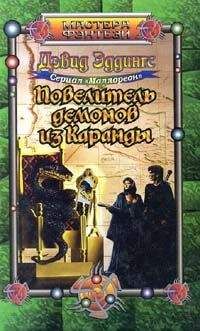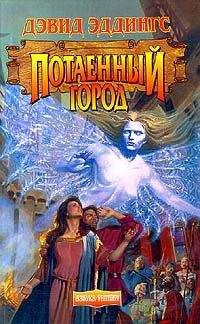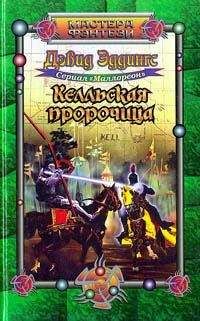David Cook - Horselords
Скачивание начинается... Если скачивание не началось автоматически, пожалуйста нажмите на эту ссылку.
Жалоба
Напишите нам, и мы в срочном порядке примем меры.
Описание книги "Horselords"
Описание и краткое содержание "Horselords" читать бесплатно онлайн.
Dismissing the topic in his mind, Yamun slowed his horse and looked with pride on the endless sea of soldiers' tents and campfires. This was his army. He had organized the tribesmen into arbans of ten men, then jaguns of one hundred, further still to minghans of one thousand, ending finally in the tumen, the great divisions of ten thousand men. Every soldier had a rank and a place in the army, just as Yamun planned. Under his command the men of the steppe were transformed from raiding bands into a tightly disciplined army.
The khahan reined in his horse, bringing it to a stop just in front of a small group of soldiers gathered around their fire. The entourage with him clattered to a stop, too. The squad of ten men who sat around the fire leaped to their feet.
"Who is the leader of this arban?" Yamun demanded, tapping his horsewhip on his thigh. The khahan's horse pranced uneasily, agitated by Yamun's energy.
One man hurriedly ran forward and flung himself to the ground at the mare's hooves. In the warm spring day, the man wore only his woolen trousers and kalat, a stained blue tunic trimmed with red. A conical bearskin cap, decorated with goat-hide tassels, identified the man as a common trooper of Chanar's tumen.
Satisfied with the trooper's response, the khahan waited for his horse to quiet down. "Rise, brother soldier," he said, trying to put the nervous trooper at ease.
"Yes, Great Lord," mumbled the man, pushing himself up from the dirt. Even sitting upright, the man kept his eyes downcast. Yamun could tell the man was a tough and seasoned soldier by the large scars on his cheeks.
"Fear not, warrior," Yamun spoke soothingly. "You're not to be punished. I've some questions, that's all. The commander of your jagun recommended your bravery and skill. What's your father's ordu?" Yamun whisked away the flies from his mare's mane.
"Illustrious Emperor of the Tuigan, my father was born into the Jebe clan." The trooper bowed again on completing his words.
"Jebe's ordu has many tents, and he's served me well in the past. What's your name?"
"Hulagu, Khahan," the trooper answered, bowing again. "Very well, Hulagu. Stop bobbing up and down and be a soldier." The man sat up straighter, obedient to the words of his khahan. "Jebe Khan keeps his ordu to the east, near the Katakoro Mountains, doesn't he?"
"Yes, Great Lord, in the summertime when the pastures are rich there."
"Have you heard of the Khazari? I'm told they live in those mountains." He stroked the neck of his horse, keeping it calm.
"This is true, khahan. We sometimes take their sheep and cattle," the trooper answered with pride.
Yamun smiled. Raiding and rustling were old and honorable traditions among the Tuigan. As khahan, he could barely keep the different ordus of the Tuigan from stealing each other's horses. Any Tuigan caught stealing from another was executed on the spot, but the law did not apply to non-Tuigan. Yamun tucked his horsewhip into his boot-top. "Are they easy to raid?"
"My father says it was not as hard as raiding the ordus of Arik-Boke and Berku—or so he was told; my father never did this," Trooper Hulagu added hastily, remembering the penalties Yamun had set. "The Khazari aren't horsemen and don't chase us very well, so it is easy to get away. But they live in tents of stone and keep their sheep in pens at night, so we could only raid them when they took their flocks out to pasture."
"Are they a brave people?" Yamun asked, dropping his horse's reins to let it graze.
"Not as brave as the Jebe," the man answered with a trace of boastfulness. "They would fight, but were easy to trick. Many times they did not send out scouts, and we could fool them by driving horses ahead of us to make our numbers seem much larger." The trooper wriggled a little, trying to keep his toes warm in the cold mud.
Yamun stroked the fine beard on his chin. "Are there many of them?"
The man thought for a bit. His eyes glazed as he started imagining numbers larger than twenty.
Finally, the trooper spoke. "They are not so numerous as the tumens of the khahan nor do they fight as well," he said, breaking into a big smile at what he thought was his own cleverness.
Yamun laughed at the man's answer. What he really needed, as he had known from the start, was solid information on who and what the Khazari were like. Trooper Hulagu's memory was certainly not going to be enough. "What's the distance to Khazari?" he asked. Again the man thought, although this time Yamun suspected he knew the answer.
"Illustrious Emperor of the Tuigan, when I left my ordu to join the magnificent Son of Teylas's armies, I rode for three weeks, but I did not hurry and stopped many days in the yurts of my cousins along the way. The trip could be made faster."
"Undoubtedly," Yamun said, half to himself. The squat warlord paused, although he already knew what needed to be done. Leaning on the pommel of his saddle, Yamun turned to General Chanar beside him. "Chanar Ong Kho, this man and his arban are to ride with all haste to the Katakoro Mountains with as many men as you think wise to send. I want to know the numbers, strengths, and weaknesses of the Khazari. See that the scouts have fresh horses and passes. They must return in five weeks, no later." Chanar nodded in understanding.
Just as he was about to go, Yamun turned back. "And send someone from my Kashik who can count. Make him their commander. Let all who disobey you know this is by the word of the khahan." Yamun added the last automatically, a formula that signified his orders.
"By your word, it shall be done," responded Chanar mechanically, according to the formula of etiquette. "Is that all my men are to do?" the general asked.
Yamun stopped his horse and stared back at Chanar. "You, General Chanar, will ride to the ordu of my son, Tomke, and observe his camp. I want to know if his men are ready. Take the men you need and go immediately. Teylas will protect you."
"By your word, it shall be done" Chanar responded. The discussion finished, Yamun tugged his mount's reins and galloped off.
The trooper still cowered at the feet of Chanar's horse.
"Get going!" the general bellowed. The terrified Hulagu leaped to his feet and scrambled back toward his camp. With his boot, the trooper roused the men of his arban, sending them tumbling after their gear.
"See to the details," Chanar ordered an aide nearby. With his own preparations to make, General Chanar wheeled his horse around and galloped away, headed toward his own yurt.
* * * * *
In his tent, Koja brought out his papers and began to make notes of the day's events and sights. He had only added a few pages since his arrival in Quaraband. Looking at the meager letters only reminded him of how little he knew of the khahan. Undiscouraged, he took up the writing brush and with quick practiced strokes started another letter.
My lord, Prince Ogandi of the Khazari. Greetings from your most humble servant, Koja, envoy to the Tuigan court.
For two days I have awaited the word of the khahan of the Tuigan. There has been no communication from him. He has received your offers, but gives no sign of his opinion toward a treaty. I can do little but wait.
During this time, I have ridden about Quaraband, as the Tuigan call this city of tents, attempting to learn more about their numbers and their way of life. Using the paitza given me by the khahan, I have been able to go where I wish, with one exception—the royal yurt.
Koja stopped to ink his brush and lay out another sheet of paper. He paused before touching the brush to paper again. That morning he had gone to Yamun's tent. There he was stopped by the Kashik dayguard stationed by the gates. Showing his paitza had had no effect on the man and all his protests had been in vain. The guard, in his black kalat, made it clear that Koja was not to be admitted, since the priest's pass bore only the tiger seal. This was apparently the pass used by low-ranking officials. Koja thought about penning the story down, then decided against it.
Perhaps no one was allowed within the royal palace except by invitation.
Traveling elsewhere in the camp, I had no such difficulty, though I have been in the constant company of an armed escort, a precaution of the khahan. I carefully counted tents, making a knot in a string for every ten. By now the cord is short, twisted with little knots. There are more than one hundred knots on the cord, and I still have not ridden the extent of the camp. The Tuigan are a numerous people, O Prince.
In crafts and arts, the people are more than mere barbaric savages. They have men skilled in working gold and silver, and from the wool of sheep make a wondrously warm and soft fabric called felt. At the same time, they are among the smelliest and most abhorrent people for their personal habits.
Koja set aside his brush and pondered what he knew of the Tuigan so far. What seemed like ages ago, when he had first learned he was to visit the Tuigan, Koja had assumed that they were all uncultured savages. Chanar's appearance at the Council of Semphar—dirty, foul-smelling, rude, and arrogant—certainly confirmed that impression.
The ride to Quaraband had been no better. The entire force had traveled at a killing pace, sometimes covering sixty to eighty miles in a single day. He had joined this rank, unwashed group at their meals of near-indigestible dried meat and powdered milk curds mixed with water. For three weeks the men never changed their clothes. It was not a pleasant journey.
The Tuigan, Lord, will eat anything, nor does this give them indigestion. They are great eaters of mutton and horsemeat. They eat much game, for they are most excellent shots with the bow. Mare's milk is used at every meal, made plain, curdled, fermented, and dried. A powder made from the curds is mixed with water or, I am told, mare's blood, to make a drink the soldiers use while they travel.
Koja stopped writing when he realized that his description was incomplete. In Quaraband, he had finally been exposed to another facet of his hosts. To be sure, they still seemed to be barbarians—cruel, dangerous, and impulsive—but Koja could no longer say they were simply uneducated and unskilled. There was a surprising variety to Tuigan life.
The first thing he noticed was that not everyone traveled by horseback and lived in yurts. Mixed among the tents were households who used great, heavy carts to haul their belongings. Some families owned carts but still used yurts; others had abandoned the dome-shaped tents and lived in houses built on their wagons. Other carts carried portable forges for the blacksmiths who set up shop along the water's edge.
These smiths were skilled craftsmen. Working with silver, they made decorated cups, bowls, saddle arches, buckles, pins, and an amazing assortment of other ornaments. Others worked leather, tanning and dying horse-hide for all uses. The women wove bright-colored cloth of wool and camel hair. Armorers were especially prized, and the priest had seen many fine examples of their art since he arrived.
Koja was just about to set these thoughts down when the guard outside summoned him to the door. Hurriedly putting the writing instruments away, Koja folded the slim sheets and put them in a letter pouch. Pouring water from a leather bag, the priest rinsed his inking stone and fingers, leaving a blue stain on his fingertips. At last, with what seemed proper dignity and decorum, he threw aside the tent flap to see who was there.
Outside were five soldiers wearing white kalats trimmed with blue, the personal guard of the empress of the Tuigan, Eke Bayalun. Koja noted their presence with a slight nod.
"Empress Eke Bayalun of the royal household requests you come to an audience with her," stated the officer of the group, identified by the red silk tassels that hung from his cap.
"I am honored by the empress's invitation," Koja answered with a bow. Judging from the man's tone, Koja decided the request was actually an order, so there was little to do but accept graciously. Gathering his things, the priest mounted the horse the guards had brought for him.
Koja was curious to meet the empress of the Tuigan. Eke Bayalun was, from what he had learned, the only surviving wife of Yamun Khahan. She was also his stepmother. Apparently, Tuigan custom required a son to marry his father's widow—or widows—mostly to ensure the women would be cared for. Her full title was Second Empress Eke Bayalun Khadun, denoting her status as Yamun's second wife. It seemed she took an active interest in the khahan's affairs.
Koja studied the guards she had sent. As empress, she was allowed her own bodyguards, much like Yamun's Kashik troopers. Koja noted, too, that Bayalun's troops must not like the khahan's bodyguard; they were widely skirting the tents of the Kashik. Finally, they came to a gate in the stockade, one Koja had not seen before. They rode through without stopping, waved on by the white-robed guards that stood to either side.
Inside the palace grounds, the escort dismounted and helped Koja from his horse. Leaving the horses behind with the soldiers, the officer in charge led him through the grounds to a large, white yurt. Before it stood a banner of white yak tails. The officer knelt quickly before this and then led Koja to the door.
The man pulled the door flap aside and informed the chamberlain that they had arrived. There was a delay, then the chamberlain returned to usher Koja into the empress's yurt. As he entered, the priest noticed two rag idols hung over the doorway. Near the one on the left was a leather drinking bag; by the one on the right, a bundle of grain. Offerings to protective spirits, he guessed.
This yurt was far more lavish than the khahan's spartan tent. The chalk-white walls were hung with patterned silks of red, blue, yellow, and white. One section of the yurt was blocked off by a carved wooden screen. The rugs on the floor were bright red, embroidered in gold and silver with leaflike curls. The two tent posts that supported the central frame were carved and painted to resemble what Koja thought were twining dragons and horses.
At the yurt's far side was a square platform, no more than a few inches high, covered with rugs. On the platform was a couchlike bed of carved wood inlaid with seashells. Blankets were draped over the curved ends. Perched on its edge was a woman, Eke Bayalun.
The second empress was a striking woman, far more graceful and attractive than Koja had imagined. Knowing her to be Yamun's stepmother, Koja thought she would be an old crone, her face bound up in wrinkles with blotchy age spots. Instead, Eke Bayalun was remarkably poised and youthful. Her face was only lightly wrinkled at the corners of the eyes and mouth, the skin stretched tight over her high cheekbones. There it was smooth and flowed with a rich buttery color. Unlike the other Tuigan women Koja had seen, with their soft, round cheeks and broad noses, Bayalun had a sharp, angular nose and chin, both straight and narrow. Her eyes, too, were different, more like those of the westerners he had seen at Semphar—lacking the fold of eyelid at the outer corner. The woman's eyes were sharp, bright, and clear. Her lips were thin and tinted with natural color.
Bayalun's hair was covered with a cowl of white silk, gathered high in the back and fanned out to drape behind her shoulders. The front of the silk wrapped loosely around the neck, and wisps of black and silver hair peeked out from under the cloth. Silver earrings, set with blue and red stones, barely showed behind the fabric. Her dress, in the style of the Tuigan, was high-necked with broad lapels and collar. The dress was black silk, while the collar was a bright red velvet. Over the dress Bayalun wore a long, sleeveless felt jacket, a jupon, decorated with silver coins and silken tassels. Rough woolen trousers and hard leather boots peeked out from underneath the layers of clothing. A wooden staff, topped with a golden, fanged face, lay across her lap. At Bayalun's feet were several neat stacks of paper scrolls, each carefully tied with a cord of red or gold.
Подписывайтесь на наши страницы в социальных сетях.
Будьте в курсе последних книжных новинок, комментируйте, обсуждайте. Мы ждём Вас!
Похожие книги на "Horselords"
Книги похожие на "Horselords" читать онлайн или скачать бесплатно полные версии.
Мы рекомендуем Вам зарегистрироваться либо войти на сайт под своим именем.
Отзывы о "David Cook - Horselords"
Отзывы читателей о книге "Horselords", комментарии и мнения людей о произведении.











